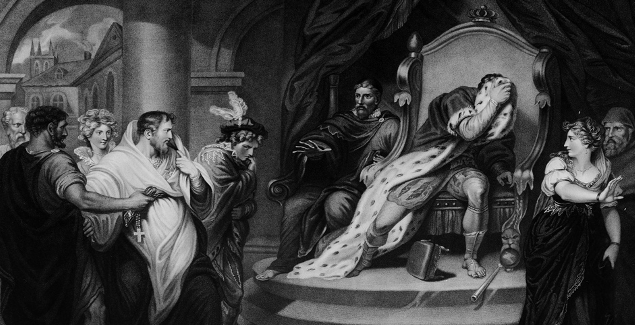By Fatima Khan
Third-year English Literature student Fatima Khan reflects on her experience as an Undergraduate Research Fellow as part of King’s Undergraduate Research Fellowship (KURF).
This year, I spent the summer working as an Undergraduate Research Fellow as part of King’s Undergraduate Research Fellowship Programme, also known as KURF.
When applying, I knew this year’s English Fellows were to embark on the role of Research Assistant, collating, assembling, and delving into various data in the build-up to the Shakespeare and Race festival. This seemed daunting at first but through asking several questions, I succeeded in gaining a greater understanding of what this role entailed.
The Shakespeare and Race festival is a collaborative celebration between Shakespeare’s Globe and King’s College London, both of whom have united to form the Shakespeare Centre London. The Centre specialises in many areas, such as ‘encouraging and facilitating interdisciplinary research into Shakespeare’, but primarily strives to engage non-traditional audiences with Shakespeare, making his oeuvre more widely accessible at all levels of education.[1]This union has also led to the birth of the Early Modern Scholars of Colour network (EMSOC),a determined organisation dedicated to Anti-Racist, inclusivity in both ‘academic and cultural spaces.’.[2]
 Eamonn Walker and Tim McInnerny in Othello, 2007. Photographer: Tristram Kenton.
Eamonn Walker and Tim McInnerny in Othello, 2007. Photographer: Tristram Kenton.
Aiming to bridge the gap between inclusive pedagogy and early modern literary culture, the Shakespeare and Race festival is predicated on values of diversity, accessibility, and innovation. Also known as the #ShakeRace, the festival gives platform to scholars, writers, actors, talented people of colour, to share unique, invaluable art in relation to Shakespeare. From numerous renown academics hosting panels to world-class performances, the annual celebration that is the #ShakeRace is an unmissable line-up of spectacles and events, one which I had the pleasure of working on.
As my Fellowship draws to a close, I have a lot of growth and reflecting to do. From writing my first large project, leading to the construction of EMSOC’s Anti-Racist, Inclusive Pedagogy Bibliography, to working alongside professors, academics, and educators, all experts in the field of Shakespeare, I learnt immensely about an area previously mystifying to me. I also worked past more personal obstacles, such as networking in the working world and developing more self-confidence. Most importantly, I learnt how to overcome the shadow of doubt that is imposter syndrome. Understanding that there is a growing place for everyone within early modern literary studies, in respect to individual intersectionality and personal identity, I soon found my uncertainty was the only barrier to breaking into the sphere of Shakespeare.
In the words of the Bard:
“Our doubts are traitors and cause us to miss the good we oft might win, by fearing to attempt”[3]
Lucio, Measure For Measure.
Works Cited:
Early Modern Scholars of Colour (EMSOC). “About EMSOC, overview:.” EMSOC, https://www.emsoc.co.uk/about. Accessed 06 September 2022.
King’s College London. “London Shakespeare Centre.”King’s College London, Research and Innovation, https://www.kcl.ac.uk/research/london-shakespeare-centre. Accessed 06 September 2022.
Shakespeare, William. Measure for Measure. Cambridge Edition ed., Gutenberg, 2007. 9 vols. Gutenberg, https://www.gutenberg.org/files/23045/23045-h/23045-h.htm. Accessed 06 September 2022.
—
[1]King’s College London. “London Shakespeare Centre.” King’s College London, Research and Innovation, https://www.kcl.ac.uk/research/london-shakespeare-centre. Accessed 06 September 2022.
[2]Early Modern Scholars of Colour (EMSOC). “About EMSOC, overview:.” EMSOC, https://www.emsoc.co.uk/about. Accessed 06 September 2022.
[3]Shakespeare, William.Measure for Measure. Cambridge Edition ed., Gutenberg, 2007. 9 vols. Gutenberg, https://www.gutenberg.org/files/23045/23045-h/23045-h.htm. Accessed 06 September 2022.
Blog posts on King’s English represent the views of the individual authors and neither those of the English Department, nor of King’s College London.
You may also like to read:

